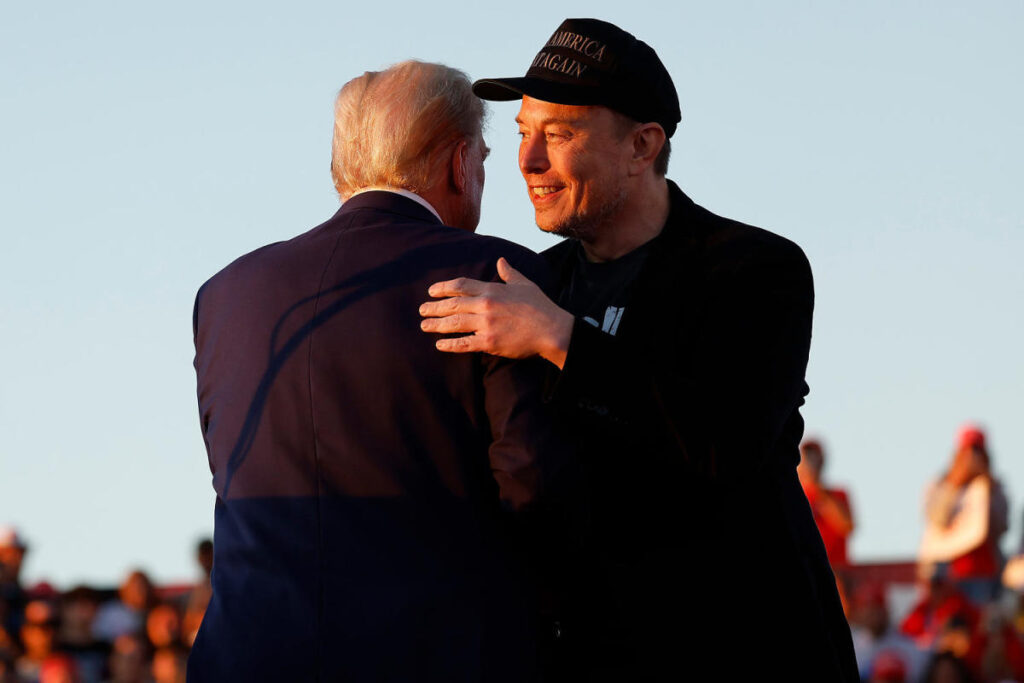Elon Musk, the influential tech entrepreneur known for his ventures with companies like SpaceX and Tesla, made headlines recently when it was revealed he joined a phone call between President-elect Donald Trump and Ukrainian President Volodymyr Zelenskyy. According to sources familiar with the incident, Musk’s participation was not scheduled, but he walked into the room during the conversation and greeted Zelenskyy. Despite his unexpected appearance, it was noted that Musk did not engage in any substantial discussions during the call. The information about his involvement was first reported by Axios and later confirmed by other news outlets, although there has been no response from either Musk or the Ukrainian Embassy regarding the matter. Trump’s transition team officials also declined to comment on the occurrence.
Following the call, Zelenskyy described his conversation with Trump as “excellent,” expressing optimism about ongoing dialogue and cooperation between Ukraine and the United States. He highlighted the importance of strong American leadership for both global stability and achieving a fair resolution to the conflict involving Russia. The phone call aligns with Trump’s previously stated position that he believes he could quickly resolve the war in Ukraine, proclaiming he could have the situation “settled” within a day if he secured the presidency again. However, he did not outline a specific plan to achieve such a quick resolution during his remarks.
During a debate against Vice President Kamala Harris, Trump made headlines by refraining from unequivocally supporting Ukraine in its conflict with Russia. Instead, he emphasized the need for the United States to focus on concluding the war, advocating for negotiations rather than an explicit endorsement of a Ukrainian victory. This approach reflects a broader sentiment among some Republican members, including Vice President-elect JD Vance, suggesting that a compromise might require Ukraine to relinquish some of its territories to achieve peace.
Musk’s connections with political leaders extend beyond Ukraine; he has also had discussions with Russian President Vladimir Putin, a fact that highlights the complexity of his role in international relations. Initially, Musk made headlines for his support of Ukraine by providing Starlink satellite internet services that are crucial for maintaining communication in war-torn areas. These emergency measures showcased a proactive side of Musk in aiding Ukraine’s resistance against Russia’s aggression.
Despite his aid, Musk has drawn criticism from Ukrainian officials for his controversial suggestions regarding territorial concessions to Russia. In October 2022, he proposed that Ukraine might consider ceding Crimea to Russia as part of a potential peace agreement, a proposition that angered Zelenskyy and other key figures in Ukraine. Musk’s views on the conflict illustrate the conflicting perspectives held by leaders and influential figures surrounding the issue, presenting a complex landscape of international diplomacy.
The latest phone call serves as a reminder of the intertwining nature of technology, politics, and personal influence in modern governance. Musk’s unexpected presence in a dialogue concerning global peace underscores the unpredictable dynamics of leadership and the potential impact of influential business figures on international affairs. The reactions to Musk’s comments and participation highlight the sensitivity surrounding the ongoing conflict in Ukraine and raise questions about the role of private individuals in shaping international policy discussions, especially in such a high-stakes arena.

